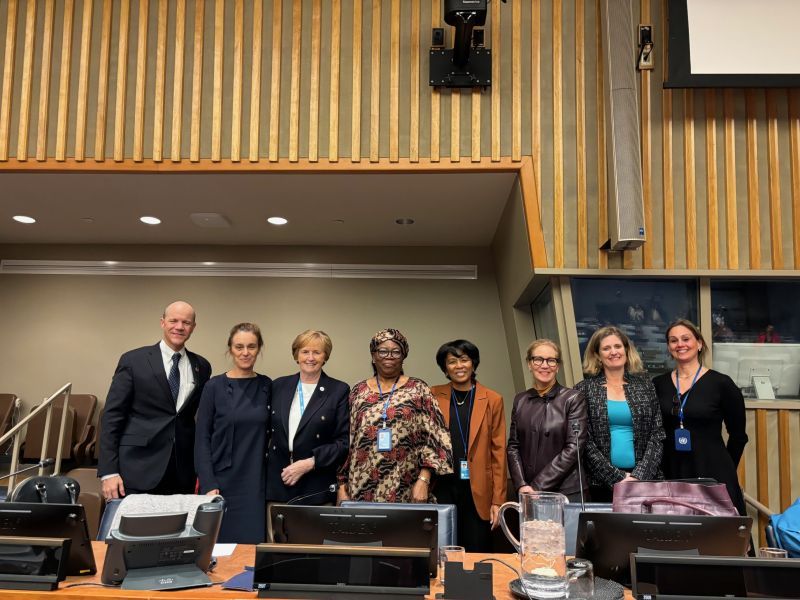
The 62nd session of the United Nations Commission for Social Development (CSocD62) explored how social policies can accelerate progress on the implementation of the 2030 Agenda for Sustainable Development.
Held at the United Nations headquarters in New York, the session included a multistakeholder panel on 8 February featuring Doug O’Brien, CEO of our member in the USA, NCBA-CLUSA.
During his intervention, Mr O’Brien described cooperatives as an innovative and proven strategy to advance social development, providing examples from around the world.
“Today, approximately 12% of all humanity, more than a billion people are members of cooperatives,” he said. “There are 3 million cooperatives worldwide, providing 10% of jobs across the world. Here in the United States, one out of every three people in the US is a member of a cooperative, of a business that they own, that they control through a democratically elected board, and that benefits them directly.”
As the national US apex for cooperatives, NCBA-CLUSA has been working with the United States Agency for International Development (USAID) to use coops to create economic opportunities around the world.
NCBA-CLUSA is working on 26 projects in 16 countries, including the Atitlan Recicpla Cooperative in Guatemala, a women’s recycling cooperative set up to clean their local areas of litter left behind by those visiting Lake Atitlán.
Another example is the Cooperativa Café Timor, established 30 years ago by 450 coffee farmers. Today, it serves over 44,000 coffee-growing households, helping them access international speciality markets and access healthcare services.
Mr O’Brien highlighted the importance of a supportive public policy environment to enable more people to use cooperatives to advance their social development goals. To this end, he encouraged UN Member States to use the Cooperative Law and Regulatory Initiative of the US Overseas Cooperative Development Council to assess the regulatory and legislative environment within their country against the best practices of cooperatives and the seven cooperative principles.
Mr O’Brien explained how many countries have been able to use this tool and change their legislative environment, including Kenya, the Dominican Republic, and Ecuador.
Going back to examples from his home country, he explained how a supportive policy environment in the ’30s and ’40s enabled rural communities in the USA to set up cooperatives to supply electricity.
Likewise, CoBank, a cooperative bank created in 1989, is today one of the largest private providers of credit to the US rural economy. Its most recent Sustainability Report highlighted how its work around diversity, equity and inclusion, disaster relief, advocacy and industry support the Sustainable Development Goals.
The presentations were followed by a questions and answers session. Mr O’Brien reiterated the importance of having UN Member States implement policies that are favourable to cooperatives. He added that the most impactful compelling messages to policymakers are a mixture of qualitative and quantitative.
“If we can bring good data around the needs and the potential for change, that can be very compelling but data itself I do not think it's enough,” he said. “The policymakers need to understand and hear the stories of people on the ground of how strategies would help people build cooperatives or how it would help ensure that more people would have safe and affordable housing.”
Mr O’Brien also reminded delegates that 2025 has been declared the UN International Year of Cooperatives.




